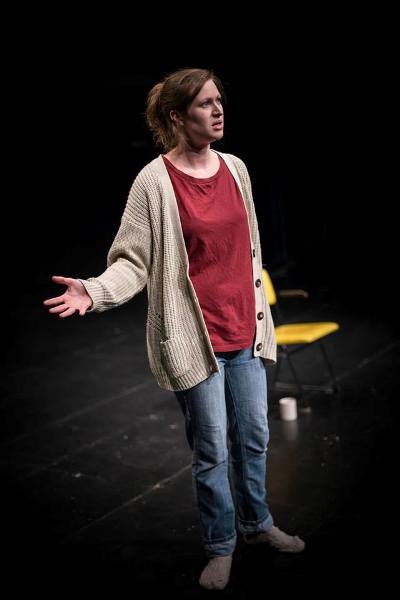The Window (Bristol Old Vic Studio)
In a society where community is no longer part of many people’s lives, especially those of city dwellers, what do we do with those old and alone. That is at the heart of Silva Semerciyan‘s monologue The Window, given a subtle, delicate performance by Charlotte Melia in a piece that never quite goes past first gear in its hour long run time.

© David Caudery
Melia is becoming a bit of a specialist in these one women shows after her turn in Helen earlier this year and she commands attention in the intimacies of the Old Vic Studio with a simplistic study of normality. Clad in burgundy t-shirt, a long beige cardigan, jeans and socks she is immediately relatable to us, a women who embraces Bristol as a city where no one needs to know her business, she can be invisible.
Befriending an elderly, recently widowed man named Ted, she originally views him like a member of the family but as he becomes more needy, more demanding, Semerciyan cleverly asks who is responsible for his care if he no longer has any family of his own. When we can no longer define ourselves as part of a community, are we ultimately just in it for ourselves?
Under Lee Lyford‘s unobtrusive direction, Melia brings the characters to life with a simple deepening of a voice here, a slight inflection of a Bristolian accent there. There’s no actor pyrotechnics here which makes it a slight shame that they didn’t decide to let her play it without Timothy X Atack‘s sound design, piano key tinkered here, a little percussion there, which adds nothing to the pieces mood or atmosphere.
However good Melia is at telling the story and however pertinent the writing it never really sets the pulse racing. It’s a serious point the play is trying to make but by being so undemonstrative the piece quickly fades from memory. Much like those most vulnerable and on their own. Maybe the play makes its point after all.










